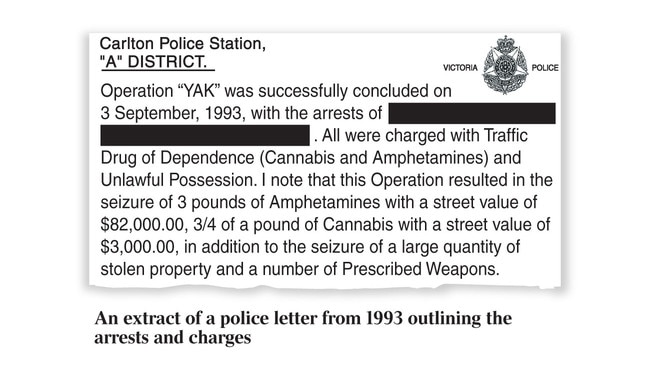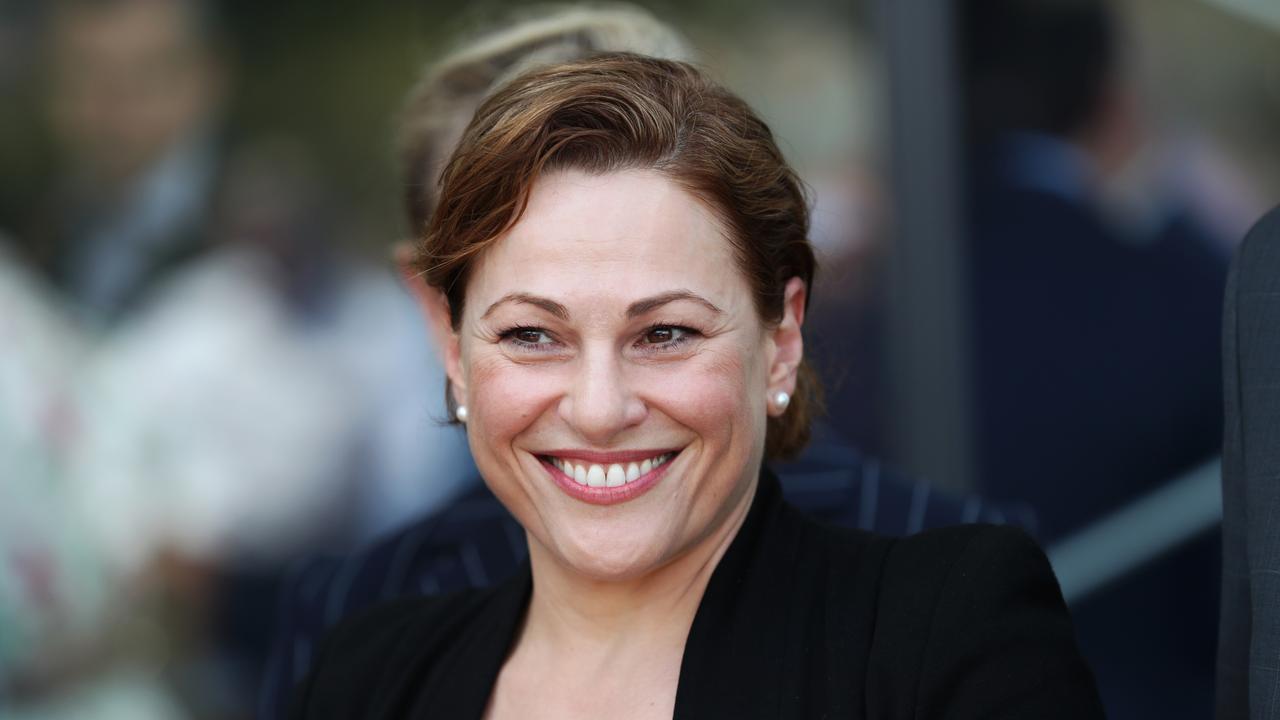Police informant royal commission: Lawyer X turned snitch after drug charges were dropped
Drug charges were withdrawn against the lawyer at the centre of the Lawyer X scandal two years before becoming an informant.

Career-destroying charges of drug-trafficking were withdrawn against the former barrister at the centre of the Lawyer X scandal two years before she was first registered as a police informant.
Dramatic new information unearthed by the Victorian royal commission into police informants reveals that Lawyer X started snitching more than 20 years ago, when she was a final-year, law-school student.
The royal commission discovered Lawyer X was first registered as a police informant in 1995 — 10 years earlier than the High Court was told last year when it examined her activities — and that the scandal was broader than previously understood, with other lawyers acting as informants for Victoria Police. The expanded timeframe and scope of the inquiry prompted the royal commission to broaden its terms of reference and one of its commissioners, former South Australian top policeman Mal Hyde, to stand down to avoid a perceived conflict of interest.
The altered timeline means that Lawyer X and Victoria Police misled separate hearings before the Victorian Supreme Court, the Court of Appeal and the High Court about when, how and why she became an informant.
It also casts new light on a 1993 covert police operation that culminated in the seizure of trafficable quantities of amphetamines and cannabis from a Carlton house where Lawyer X, then a law student at the University of Melbourne and a young Labor Party activist, was living with two suspected drug dealers.

A two-week police surveillance investigation dubbed Operation Yak recovered 1.4kg of speed with an estimated street value of $82,000 from the Carlton address. On September 3, 1993, Lawyer X and two housemates were each charged with trafficking and unlawful possession of a drug of dependence.
Two months later, the trafficking charge against Lawyer X, a member of a prominent legal family and at the time the niece of a Victorian Supreme Court judge, was dropped.
She pleaded guilty to the less serious charge of possession and no conviction was recorded.
Legal sources said the downgrading of the serious criminal charge potentially saved her legal career. Had she been convicted of trafficking and declared this to the admissions board, she would almost certainly have been denied admission on character grounds. Lawyer X was admitted to practice in 1996 and joined the Bar in 1998. She quickly came to prominence as the counsel for some of Melbourne’s most notorious gangland figures.
At the height of the gangland war, she became a conduit between police and murderers and rapists who were willing to testify against other crooks in exchange for significantly reduced sentences. Some have since been released from jail.
Lawyer X testified before the Supreme Court that her sole reason for providing information to police was to rid her life of the influence of the Mokbel drug cartel.
It now appears she had no connection with the Mokbels when she was first registered as an informant.
In a 2015 letter to Victoria Police, she claimed: “I helped because I was motivated by altruism rather than for personal gain.’’
Lawyer X’s activities have been reviewed by multiple high-level police and external inquiries. Victoria Police blamed “shortcomings in our record-keeping practices’’ for a failure to detect and declare her early involvement as an informant.
Victorian Bar president Matt Collins QC said the revelations highlighted the “criticality’’ of the royal commission. “If public trust is to be restored in Victoria Police, then it is vital that all of these activities are exposed to the antiseptic of public scrutiny.’’
Victoria Attorney-General Jill Hennessy announced in response to the latest disclosures that the royal commission terms of reference had been amended on request, and Mr Hyde, a Victoria Police deputy commissioner in the year Lawyer X was first registered as an informant, had stepped down. Mr Hyde yesterday told The Australian he had made the decision to avoid any “negative perceptions”.
“It was an honour to be on the royal commission,” Mr Hyde said.
“I have no direct conflicts of interest, but I wanted to avoid any negative perceptions for the commission with my decision to resign.”
It is understood the other lawyers registered as police informants worked as solicitors.
Melbourne lawyer David Galbally QC said people convicted on the basis of information provided to police by their own lawyer should “absolutely” consider an appeal.
He said the saga may result in hefty compensation claims.
“The communications they would have had between their lawyer and themselves would have been done under the guise of professional privilege,” Mr Galbally said.
“Whether that will ultimately be protected by a court remains to be seen and as to whether or not they would have grounds to appeal. But they should consider it.”
President of the Law Institute of Victoria Stuart Webb said Lawyer X had not upheld the standards of her profession, and he was unaware of any other lawyers who had breached their confidentiality obligations.
“We support the royal commission and its work, and support remedies to ensure the integrity of the justice system is upheld,’’ he said.
Additional reporting: Rachel Baxendale


